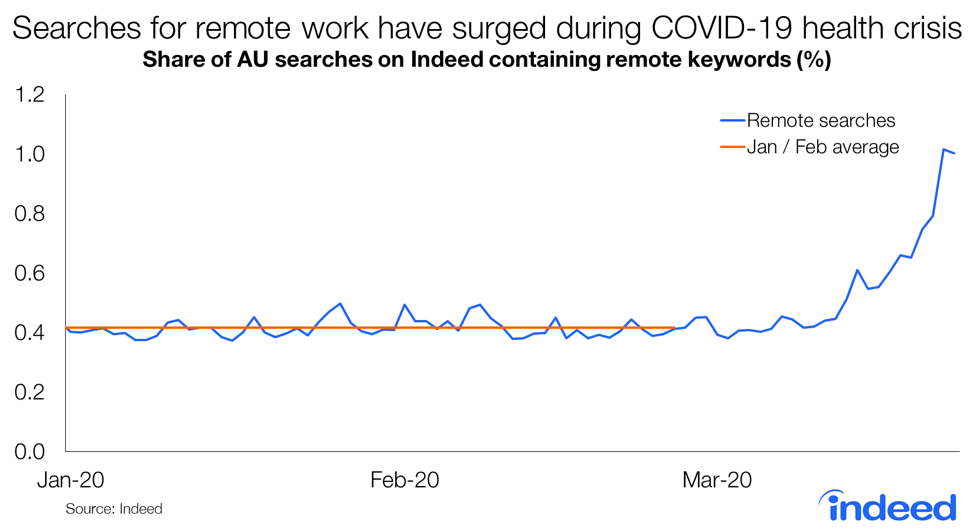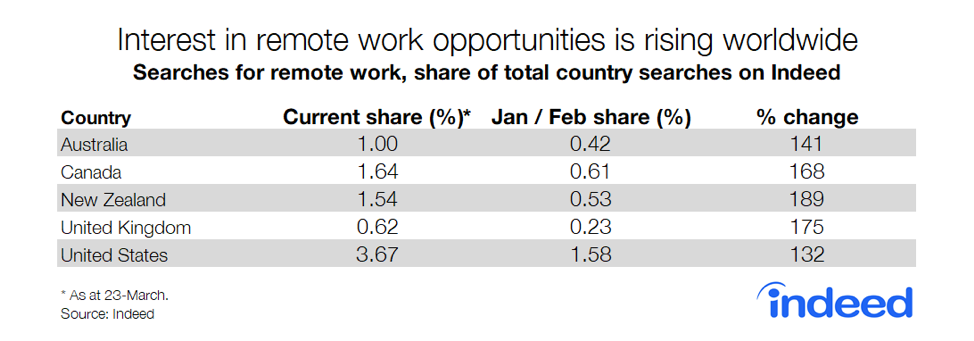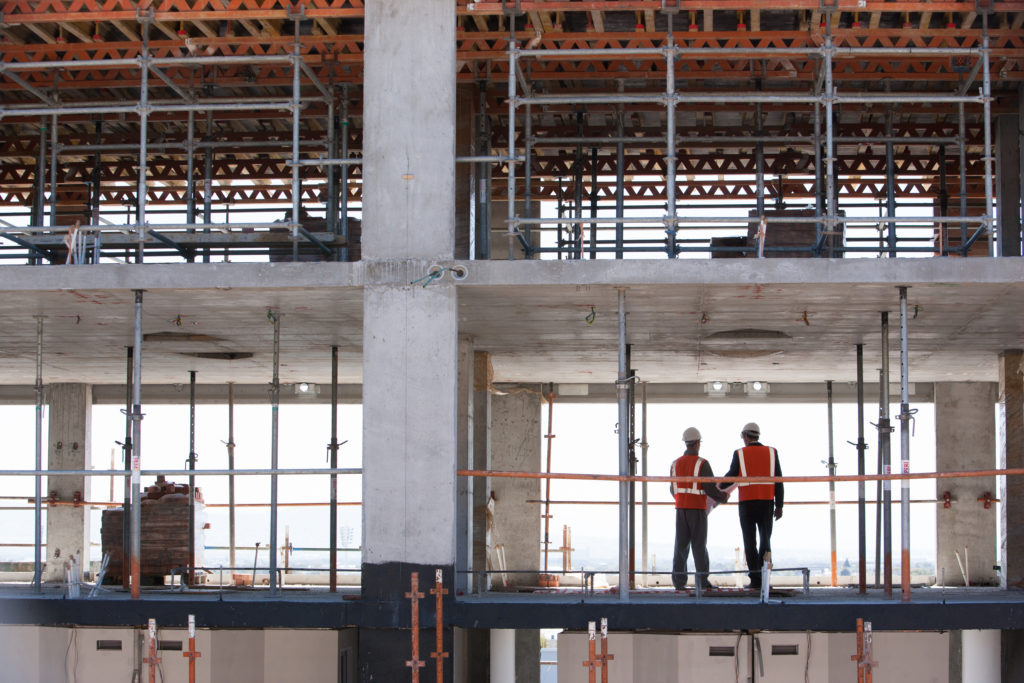Key points:
- Australian searches for remote work have jumped 140% compared with what was normal before the crisis.
- Greater interest in remote work is apparent worldwide, with strong growth across a number of countries such as New Zealand, Canada and the United Kingdom.
- Workers with a job that can be performed remotely are best placed to ride out this economic crisis. That could make remote work even more appealing in the future.
With Australians forced into self-isolation in response to the COVID-19 health crisis, the ability to work from home has never been more appealing. On Indeed, the share of Australian job searches using terms such as ‘remote’ or ‘work from home’ is currently around 140% higher than it was, on average, during January and February.
In recent days, searches containing remote keywords accounted for 1% of all searches. That’s up from an average of 0.4% in January and February. Search behaviour has ramped up as the COVID-19 crisis deepened, particularly once forced shutdowns of certain jobs and industries commenced.

It is a global trend
Workers across the globe are searching for remote working opportunities with unprecedented vigor. Australia’s jump is actually quite mild in comparison to our cousins across the Tasman. Around 1.5% of New Zealand searches feature remote keywords, up 189% on its average share in January and February. Similar jumps are apparent in both Canada and the United Kingdom.

While it is tough to focus on the future of work right now, the crisis may change the way employers and workers think about remote work. Jobs that can be performed remotely appear more resistant to economic disruption, at least in the case of a pandemic, which may make these jobs more appealing to future job seekers. Meanwhile, some jobs are likely being performed remotely for the first time. That could pave the way for remote work to be more accepted or common once the recovery begins.






